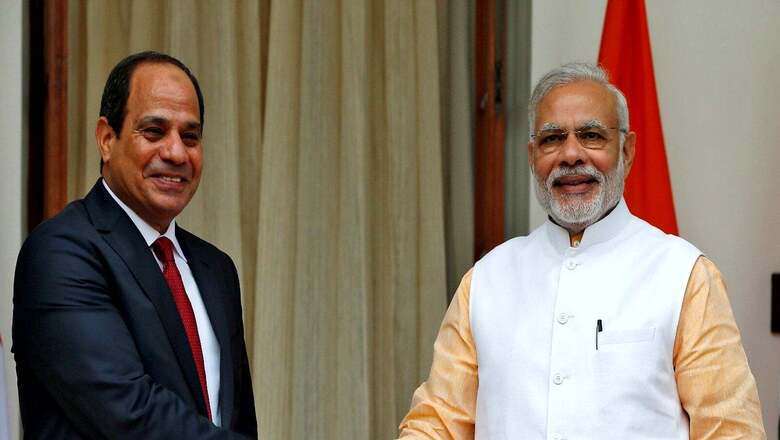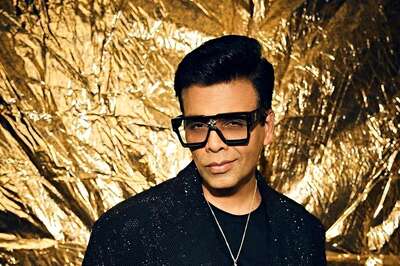
views
Egyptian President Abdel Fattah Saeed Hussein Khalil el-Sisi has been invited as the chief guest for India’s 76th Republic Day. Egypt is also among the nine countries India has invited to participate in the G20 summit this year. Last year, both countries celebrated the 75th anniversary of diplomatic relations. India and Egypt share civilisational relations that have stood the test of time and are a testament to Afro-Asian unity. During the scourge of the Covid-19 pandemic, India sent an Indian-made vaccine to Egypt, while during the devastating second wave of Covid-19 in India, Egypt sent emergency medicines, oxygen cylinders, oxygen concentrators and Remdesivir to India. Egypt due to its historical legacy, the largest army in the region and strategic location, has emerged as a leading player in the Middle East North Africa (MENA) region and India’s key partner in the region. The relationship between both countries has been gaining momentum with the presidency of Sisi since 2014 with deeper strategic and increased economic engagements. The visit of President Sisi to India provides opportunities for both countries to rekindle their historical friendship and scale up their relations as strategic partners.
Strategic Realignment
India and Egypt share close relations based on a long history of contracts since the days of non-aligned movement resulting in cooperation in bilateral, regional and international issues. In the prevailing geopolitical upheaval, both need to recalibrate their strategic engagement to navigate it. Egypt’s strategic location at the crossroads of Asia, Africa and Europe makes it a key player in West Asia and a gateway to North Africa and the Mediterranean region. Under President Sisi, despite domestic and economic challenges, there has been greater international engagement in MENA and beyond. In this, India is emerging as a key strategic partner. Indian defence minister visited Egypt last year, giving a boost to the existing defence relation between both countries. The two signed agreements for joint training and exercises of the armed forces, co-production and maintenance of military equipment and platforms. Egypt has shown interest in acquiring Akash surface-to-air missiles and Tejas fighter jet, apart from expanding the army, the navy and the air force exercise. Special Forces of both countries recently held their first joint exercise in Rajasthan.
Deepening of Economic Corporation
India is Egypt’s one of most important trading partners. The bilateral trade relations between the two were around $7 billion in 2022. The bilateral trade has increased more than five times in the last 10 years and grew by 76 percent from 2021-2022. India’s key import from Egypt includes petroleum, liquefied natural gas, fertilisers and cotton, while export includes frozen meat, tobacco, motor cars and cotton yarn. There are over 450 Indian companies in Egypt with combined investments of over $3.15 billion. Despite challenges in Egypt’s economy, it provides interesting economic opportunities to Indian companies. It is not only the gateway to the MENA region but also the European Union (EU) market. Egypt has a free trade agreement with the EU providing immense opportunities for an investor to tap the huge EU market.
Another area of mutual corporations can be the agriculture sector. Due to the Russia-Ukraine conflict, the global food supply has been hit as they together produce 30 percent of the world’s wheat, 60 percent of the world’s sunflower oil and 20 percent of the world’s corn, badly affecting food security in Egypt. It is one of the world’s largest importers of wheat with 85 percent of its wheat and 73 percent of its sunflower coming from these two countries. Despite the decrease in wheat production and increased domestic demand, India sent 61,000 tonnes of wheat to Egypt, making it the largest export after the ban imposed on wheat export. India is emerging as one of the leading wheat exporters in the world while Egypt as the leading fertiliser exporter. This provides opportunities for both countries to deepen their economic relations and also provide food security for their people.
Kingshuk Saha is a researcher at the Takshashila Institution. Views expressed are personal.
Read all the Latest Opinions here


















Comments
0 comment